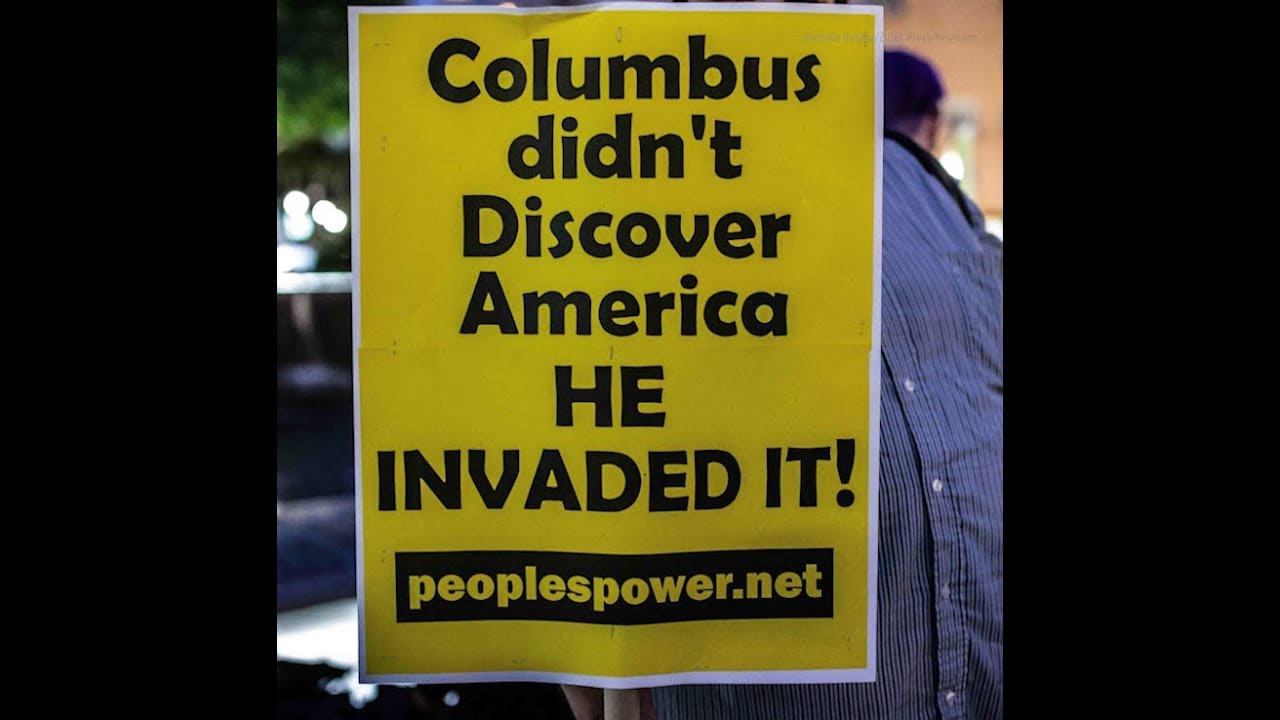Confederate statues aren’t the only ones to come under siege from protesters.
Christopher Columbus, the Spanish-backed Italian explorer who discovered the Americas, is also being attacked on a wide scale.
Activists and cities around the country are now working to change the holiday made in his name and are working to remove monuments in his likeness.
New York City Mayor Bill de Blasio has even called for a commission that will review potentially removing the over 70-foot-tall column dedicated to Columbus that currently stands in Columbus Circle.
And Portland, Maine’s City Council recently designated the second Monday of October “Indigenous People’s Day” and has elected to stop celebrating Columbus Day.
This is quite a turnaround from when Columbus was almost universally admired.
Ronald Reagan once said of the famed explorer:
He is justly admired as a brilliant navigator, a fearless man of action, a visionary who opened the eyes of an older world to an entirely new one. Above all, he personifies a view of the world that many see as quintessentially American: not merely optimistic, but scornful of the very notion of despair.
So, why is this once uniting figure who stood for the New World and immigrants suddenly under attack?
Sadly, much of the modern hostility to Columbus can be traced to the work of a far-left historian, Howard Zinn, whose book, “A People’s History of the United States,” has left an oversized mark on American K-12 and college students.
However, Zinn claimed to turn the pro-Columbus narrative on its head, writing that Columbus was essentially a genocidal monster who paved the way for greedy, profit-seeking capitalists from the Old World to destroy and pillage the peaceful indigenous people of the New World.
“Behind the English invasion of North America,” Zinn wrote, “behind their massacre of Indians, their deception, their brutality, was that special powerful drive born in civilizations based on private profit.”
One doesn’t have to embrace all of the Italian explorer’s actions to appreciate what he accomplished and how it transformed the world for good.
Historians have certainly pushed back on Zinn’s caricature.
Professor Carol Delaney of Stanford University has criticized Zinn’s history and defended Columbus as devoutly religious, and not simply a man committed to pillaging and plunder.
She said:
His relations with the natives tended to be benign. He liked the natives and found them to be very intelligent … Columbus strictly told the crew not to do things like maraud, or rape, and instead to treat the native people with respect. There are many examples in his writings where he gave instructions to this effect. Most of the time when injustices occurred, Columbus wasn’t even there.
But Zinn goes even further.
His narrative is based on the idea that not only was Columbus a villain, but the product of his discovery was also an evil. His book follows this in maligning the Founding Fathers, Abraham Lincoln, and America’s role in World War II, among numerous other individuals and events in our history.
Of the Founding Fathers, Zinn wrote:
They found that by creating a nation, a symbol, a legal unity called the United States, they could take over land, profits, and political power from the favorites of the British Empire. In the process, they could hold back a number of potential rebellions and create a consensus of popular support for the rule of a new, privileged leadership.
Notions of liberty and timeless principles were dismissed by Zinn as simply the tools of tyrants, which is, of course, the point of his book.
It is a tale of oppressors and oppressed, wrapped in Marxist historical theories.
“A People’s History” is filled with half-truths, ideological distortions, and outright fabrications, yet it is still widely used in American schools.
This is a shame, as he is misleading future generations through his deceiving, but influential work.
Even the far-left magazine, New Republic, conceded that Zinn was a poor historian who did a disservice to his readers, saying:
In writing as or about radicals, historians owe it to their readers to include the bad with the good, the ignoble with the noble—not in the service of ‘balance’ but in the pursuit of intellectual honesty. The most regrettable aspect of Howard Zinn’s full and lusty life is not that he chose to ignore this responsibility. It is that he never seemed aware of it in the first place.
“A People’s History” is terrible history, but it is effective ideological propaganda. And when it’s the only thing students are reading, there’s no wonder that activists are taking to the streets to attack American figures of the past.
Commentary by Jarrett Stepman. Originally published at The Daily Signal.
